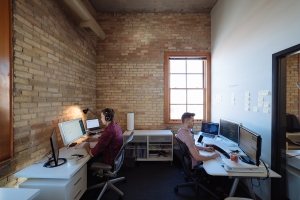Being self-employed is all the rage these days as more and more workers break away from mainstream ways to have a career.
It's trendy. "Working for yourself" is a buzz phrase, as is "Setting your own schedule". What could be better? You can get out of bed whenever you want - or work from bed - sit in your matching pajama set all day long with Law & Order marathons on in the background.
That is the dream, right?
Being a trendy topic, the general population of people in society lump self-employment into that singular image of total freedom and a stress-free lifestyle. Self-employment, however, includes very different things, such as entrepreneurship and freelancing.
So how do these lone wolves differentiate themselves?
Both entrepreneurship and freelancing scenarios can be thought of as entire businesses, consisting of their service, marketing, financial accounting, and legal registration to be legitimate, but the marketing of them can be treated very differently.
The big difference comes down to subjective choice.
Entrepreneurs know that the marketing is everything and often invest a lot of money in a third party marketing service in order to help them establish market fit and identify the most effective marketing channels for their product or they invest a lot of time into their marketing content that they send out to every channel in hopes of catching the right customer's eye.
Freelancers, on the other hand, may seek to maximize all the same channels in the same market, but their outreach may not need to be as robust. In other words, they may be able to function successfully with only one channel or with no structured marketing campaigns at all.
Though there are a million variations of startups and freelance brands, one powerful distinction is that entrepreneurs very often must start from scratch with their marketing because the world has no idea that they exist at all. On the contrary, freelancers choose to offer a specialized skill for which people in the world might specifically search.
This curbs the risk for freelancers because there is more likely some demand for their service already and the demand on their self-promotion may be lower.
As a result, the personal branding of freelancers can be more casual. Kerry Needs, a British freelance copywriter, states:
"I don’t want to become a sales channel on social media for my business. It doesn’t feel right to me — I’d rather just use my platforms to share what I am interested in, and be myself rather than pushing “a brand.” Branding myself feels too confining.
As a freelancer, you are allowed to have a wide range of interests and skills and to use your social media to promote them. I have learned that, by being a little more personal and focusing away from pushing a brand, you may connect with the types of people you want to work with anyway."
The decision to be self-employed comes with a lot of risks no matter how you slice it.
Entrepreneurs can offer a broad impact on the world markets but the owner must be careful of their personal branding.
Freelancers offer a specialized product for a narrow niche, but they have more freedom to show their personal life in their social media and self promotion.
If you chose to venture into self-employment, which path would you take?
Freelancers, Don't Forget That You Are In Charge
Freelancing is tough. There is no way around it. Even though freelancers enter into the realm of self-employment willingly, few are naive enough to think that the road will not be a rocky one.
Choosing to become a freelancer requires the acknowledgement of two things:
- a desire for freedom
- personal skills and value
Anyone who has ever become a freelancer haphazardly either encountered a painful learning curve or quickly returned to a different job setting.
The irony that a lot of freelancers forget is that being a freelancer does not mean that you completely eliminate a boss from your life, but instead it means you choose to take on the responsibility yourself...in addition to every other responsibility.
Whether you are blinded by the freedom or you have been mentally preparing for the switch for months, the greatest challenge of freelancing is the unpredictability.
This scares many people, but, though daunting, it does not in fact have to be negative.
Kerry Needs, a British copywriter in her fourth year of freelancing, posted an article in her blog about how to handle the inconsistencies of the work all by yourself:
See a lack of work as a new opportunity.
As she puts it, "I like to think about the hustle that comes from periods where I’m low on work like walking into a sweet shop. There, I get to look through a variety of options and search for exactly what will feel tasty and satisfying."
It is a built in time period in which you can reassess or explore what you find interesting in your work and where you want to take your brand going forward. Maybe you have been craving work from a certain kind of company. Your lack of work offers the perfect opportunity to reach out to and make connections in that industry.
When work dries up for whatever reason, freelancers can suddenly realize just how isolated they have made themselves in the world.
Lonely does not mean alone.
Tony Robbins teaches "every problem is a question that has not yet been asked". Needs corroborates this by mentioning the way that there is a solution to every problem in the world now, and access to that solution is easier than it has ever been.
All you have to do is ask the right question: what kind of help do I need right now?
Whatever it may be, your answer provides a direction to navigate through the loneliness and loop you back to the empowering freedom of creative exploration for which you became a freelancer in the first place.


